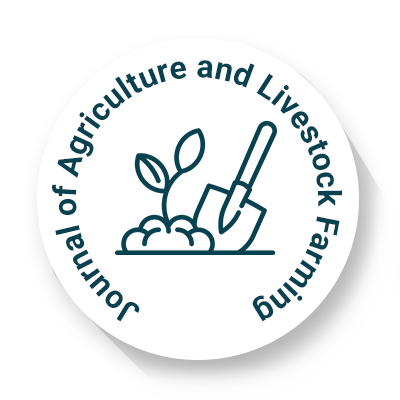
Journal of Agriculture and Livestock Farming
OPEN ACCESS

OPEN ACCESS
Animal breeding is an essential component of livestock and poultry farming, focused on enhancing favorable characteristics like growth rate, resistance to disease, reproductive efficiency, and quality of products. For centuries, conventional selective breeding techniques have been employed, selecting animals with exceptional traits for mating to transfer advantageous genes to their offspring. In recent years, progress in genetics and biotechnology has transformed animal breeding, with methods like artificial insemination, embryo transfer, and genomic selection facilitating more accurate genetic enhancements. These advancements enable breeders to improve productivity while preserving genetic diversity and avoiding inbreeding. Moreover, gene-editing technologies such as CRISPR are becoming promising methods for incorporating particular genetic characteristics that may enhance disease resistance and adaptability to changes in the environment. Sustainable breeding initiatives guarantee increased yields and enhanced quality of animal products, while also promoting animal welfare and resilience to climate change.
Animal nutrition is equally essential in influencing the health, development, and productivity of livestock and poultry. Adequate nutrition entails offering a balanced diet that satisfies the unique requirements of various animal species throughout different life phases. Vital nutrients, such as proteins, carbohydrates, fats, vitamins, and minerals, need to be provided in sufficient amounts to facilitate growth, reproduction, and the production of milk or eggs. Progress in animal nutrition science has resulted in the creation of precision feeding methods, where diets are designed according to an animal’s genetic abilities, physiological condition, and environmental factors to enhance efficiency and minimize waste. The exploration of alternative and sustainable feed sources, including insect protein, agro-industrial leftovers, and fermented feeds, is increasingly recognized to tackle issues like feed shortages and environmental effects. Moreover, probiotics and prebiotics are being added to animal feed to support gut health and improve nutrient uptake. A properly organized nutrition plan enhances productivity while also boosting the immune system, decreasing disease occurrence, and lowering the environmental impact of animal agriculture.